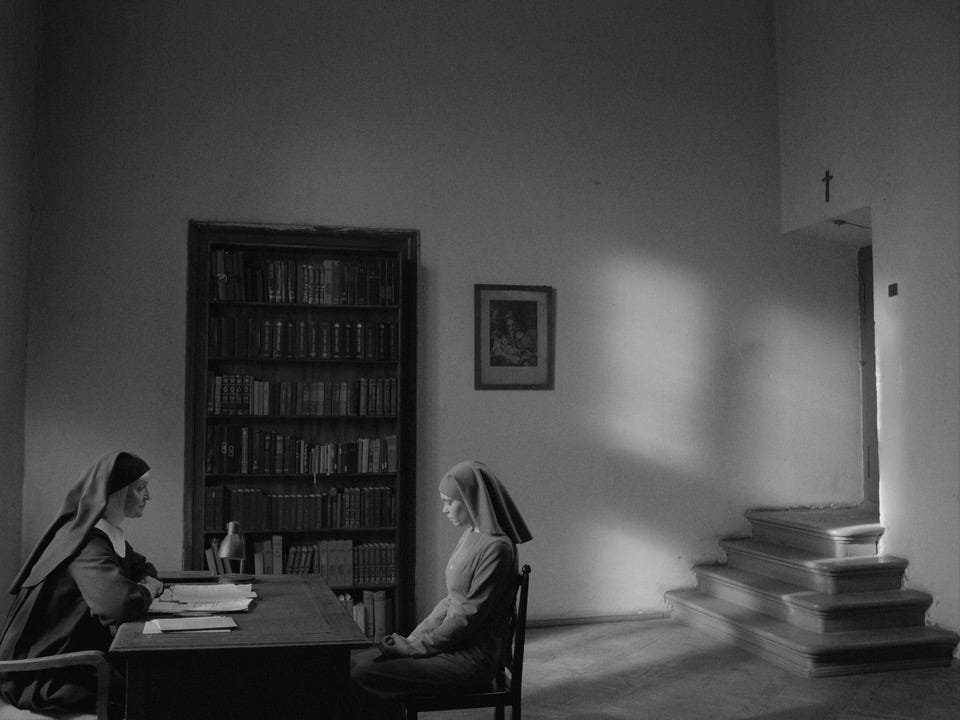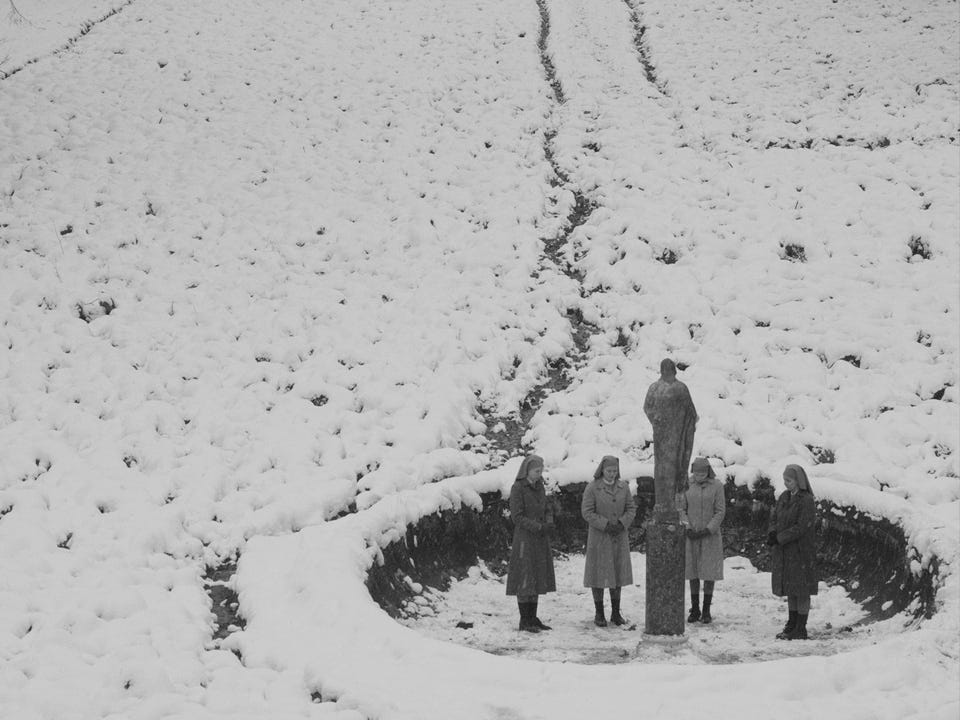Anna is a Nun in waiting. She's about to make her vowels but before doing so, her Mother Superior has a request. Anna (Agata Trzebuchowska) is to visit her estranged aunt. She learns two things from aunt Wanda (Agata Kulesza). The name given to her at birth was Ida (ee-da). She was also born a Jew. The story follows both characters on a journey to find out what happened to Anna's murdered parents during World War II.
Set in 1962 where Poland is under a communist regime, Ida explores the aftermath of atrocities subjected to Jews during the war. The locals lack optimism. Wanda, in particular, is tough. Everyone that Anna meets appears to carry a weight of the past. This not a dialogue-rich movie and the silence allows inspection. Of facial expressions. Eye contact. The tone of speech. All of these can be deafening at times and tells a story itself. The volume of Anna's spoon as she eats her soup, juxtaposed against disciplined quietness of the convent. Or the sound of wind blowing against a hanging sheet as Wanda interrogates a landowner.
Ida's boxy aspect ratio (1.37:1) enhances a striking visual experience. It's filmed in black and white, with a range of interesting spacious shots that each could make beautiful portraits. Every frame could be a painting. Lots of scenes involve Anna or Wanda at the bottom of the screen leaving a vast, lonely and isolating space.
Cinematographers Ryszard Lenczewski and Lukasz Zal almost suggest a divine figure is looking, watching and judging every step of the Polish characters. They feel that presence. The visual approach contributed towards a nomination for best achievement in cinematography during 2015's Oscars. The overall sight and sound is a mixture of Joan of Arc and The Seventh Seal, although this movie lacks the depth of both classics.
Director Pawel Pawlikowski was said to have had a very specific idea for Anna and Trzebuchowska was cast based on her appearance, despite her lack of acting experience. This lack of experience shows. Her performance is muted and Anna's limited dialogue means we miss insight into her character. We want to know what she's thinking. Her motivations. But it's the supporting cast that helps drive Anna's narrative.
The brilliance of Kulesza as Wanda keeps the intensity of their scenes together. Wanda is clearly carrying the weight of the past. She is self-destructive and has an aggressive attitude that is masking a pain which cannot heal. If Anna is on a journey of self discovery, Wanda is looking for closure. Ida won Poland's first Oscar for Best Foreign Language Film in 2015 (beating the impressive Wild Tales) but Kulesza should've at least had a nomination for her support role. Her performance elevates the movie.
For the cinematography alone, Ida is a recommended watch.



